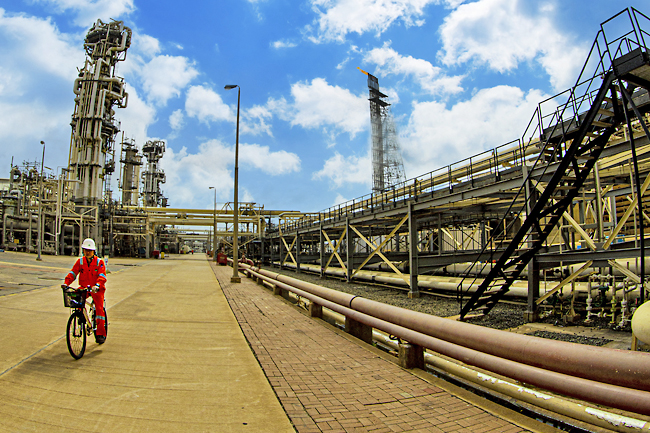The International Monetary Fund (IMF) has called for the Sultanate to adopt cautious policies and undertake structural reforms to bolster the ongoing recovery, uphold macroeconomic stability, and foster both diversification and climate resilience.
The advice comes following the conclusion of Article IV consultation with Brunei Darussalam by the IMF’s Executive Board [1].
A crucial emphasis was placed on the significance of fiscal prudence, particularly in light of the considerable uncertainties in the domain of oil and gas production and prices, as well as the long-term pressures associated with decarbonisation.
The IMF welcomed Brunei’s dedication to a growth-friendly fiscal consolidation strategy that safeguards the vulnerable segments of society while simultaneously augmenting public investment.
The mobilisation of non-oil and gas revenues, the implementation of targeted subsidies, rationalisation of the wage bill, and enhancements in fiscal transparency and risk analysis were highlighted as integral components in this endeavour. Furthermore, the IMF stressed the necessity of a robust and credible medium-term fiscal framework.
The IMF Executive Directors commended Brunei’s enduring currency board arrangement with Singapore, citing its role in ensuring macroeconomic and financial sector stability. They recommended further alignment of policy rates with the Monetary Authority of Singapore, along with more effective liquidity management practices.

While acknowledging the resilience of Brunei’s financial sector, with robust capital buffers and ample liquidity, the IMF Directors called for continued vigilance against potential risks, particularly in the face of tightening global financial conditions.
They also emphasised the need for greater financial market development and additional improvements in prudential frameworks and Anti-Money Laundering/Combating the Financing of Terrorism (AML/CFT) enforcement.
Additionally, the IMF Directors lauded the nation’s efforts to advance economic diversification and climate transition goals, urging Brunei to persist in implementing critical policy reforms to secure long-term prosperity. Key priorities highlighted by the IMF include human capital development, digitalisation, enhanced public investments and public-private partnerships (PPPs), regional integration, and improvements in data quality.
Despite Brunei’s relatively small global emissions share, the IMF Directors welcomed the nation’s ambitious commitment to achieve a net zero target by 2050.
They stressed the urgency of advancing the transition plan and advocated for a comprehensive approach to climate objectives and revenue diversification, including the integration of recommendations from the Climate Public Investment Management Assessment.
The IMF outlined key challenges that lie ahead for the Sultanate, including the gradual narrowing of fiscal space, the imperative to safeguard the economy against volatility in the oil and gas sector, global decarbonisation pressures, and the assurance of intergenerational equity.
Risks such as protracted maintenance activities in the oil and gas sector and a less favourable external environment were identified as potential impediments to the recovery, while higher oil and gas prices were seen as a potential upside.
Looking at the nation’s economic growth, the IMF predicted a contraction of approximately one per cent in 2023 due to reduced oil and gas production, driven largely by the deferment of infrastructure maintenance in the sector. – Azlan Othman






